【新唐人2011年2月11日訊】埃及年輕人發起要求總統穆巴拉克下臺的大示威,已經持續17天,目前廣場又聚集了成千上萬的抗議者,要將抗議進行到底。突尼斯的革命結束了強人本阿里21年的獨裁,埃及的抗議使統治了30年的穆巴拉克答應今年下臺。那麼,下一個變色的國家是誰?
曾經一度緩和的埃及局勢又將爆發新一輪的大規模抗議。《美聯社》報導,埃及巴士司機和公共運輸部門的工人,10號也加入罷工行列,響應全國總罷工的訴求。稍早已有成千上萬的國營事業僱員加入示威,要求埃及總統穆巴拉克下臺。
在同時,埃及外交部長蓋特(Ahmed Aboul Gheit)也發出警告,認為埃及可能發生政變。蓋特在10號接受阿拉伯電視新聞網(Al-Arabiya)專訪時表示,如果「冒進主義者」接管改革的進程,軍方將被迫防衛憲法和國家安全。蓋特的表態顯示示威民眾可能面臨新一波的鎮壓。
從突尼斯的「茉莉花革命」,到埃及的持續抗議,約旦和葉門的大規模遊行,我們看到一個波及整個中東地區的地震。那麼下一個變色的國家是誰呢?
《法國國際廣播電臺》署名胡峻玲的《中東突變的分析》這篇文章,從每個國家的自由指數來評估分析。
由美國非政府組織「自由之家」公布的自由指數,是衡量一個國家的民主化程度,包括了政治自由和公民自由兩個方面。自由指數的大小在1到7之間,1代表「最自由」,5.5到7的是「不民主國家」。
從《2011年世界自由報告》可以看到,發生大規模抗議遊行的國家--埃及、葉門、約旦和阿爾及利亞的自由指數都是5.5,突尼斯的自由指數是6。它們全都屬於「不民主國家」。而中國的自由指數是6.5,比這些國家的自由程度還要低。
天津維權人士張建中:「我想,像埃及、突尼斯當中的茉莉花,這種花香肯定會帶到中國,而且中國的問題要比這些國家的問題要嚴重的多,他們的一些問題得不到解決,是由於這個極權製造成的。」
從這一次中東抗議浪潮看,指數為6和5.5的國家是最活躍的。除了突尼斯和埃及,抗議遊行導致約旦組成新內閣,葉門總統表示不尋求連任,阿爾及利亞解除實行了19年的緊急狀態。連伊拉克的總理也因害怕人們遊行,出來表示不會尋求第三次連任。
張建中認為,中國人連最基本的人權都得不到保障,民眾們會迅速覺醒,去爭取自己的權力。
張建中:「每個人都會去想一想,誰給他們造成的?無家可歸、流浪街頭、住不起房、看不起病,這不是一個個案的問題,這是普遍現象問題,人民肯定會起來的,應當把這個花香帶到中國,現在已經在影響著中國民眾了。」
《德國之聲》報導,中國貴州人權活躍人士陳西和糜崇標,在貴陽市散發北非局勢傳單,遭到當地警方的暴力毆打。
新唐人記者常春、李靜、蕭宇綜合報導。
----------
From Freedom Index to Predict the Next Country to “Change Color”
The demonstration of young Egyptians to request
President Mubarak to step down is on its 17th day now.
Tens of thousands of protesters gathered on the central
square again, vowing to continue the protest to the end.
Tunisian revolution ended strongman Ben Ali』s tyranny.
Egyptian protests caused Mubarak to step down this year.
Then, what country would be the next to “change color”?
The once eased Egyptian situation is soon to intensify
with a new round of large scale demonstrations coming.
Associated Press reported, Egyptian taxi drivers and
public transit workers answered the call for nationwide
strike by joining the protesters on Feb. 10.
Earlier, tens of thousands of state employees already
joined the protesters to oust President Mubarak.
Meanwhile, Egyptian foreign minister Ahmed Gheit
warned that a military coup could take place.
Gheit said to Al-Arabiya in an exclusive interview,
if the “aggressive advocates” hijack the reform process,
military would have to protect the Constitution and
state security. Gheit』s statement indicated that Egyptian
demonstrators may face a new round of suppression.
From Tunisian “Jasmine Revolution”, to Egyptian protests,
to the large scale demonstrations in Jordan and Yemen,
we have seen a quake spanning over the entire middle East.
Then, which country would be the next to “change color”?
An article by Hu Junling published on Radio France
Internationale evaluated a country by Freedom Index.
The freedom index published by the U.S.-based NGO
“Freedom House” has been used to evaluate
the political freedom and citizen freedom of a country.
The index ranges from 1 to 7, with 1 for the freest,
while 5.5 to 7 denotes a undemocratic country.
World Freedom Report 2011 shows the countries
with large-scale protests like Egypt, Yemen, Jordan
and Algeria all have a freedom index of 5.5.
Tunisia』s is 6. None of them are democratic countries.
With a freedom index of 6.5, China has a even lower
level of freedom than the foregoing countries.
Zhang Jianzhong, a rights activist in Tianjin: "I think,
like in Egypt and Tunisia, the jasmine scent will
certainly flow into China, which has much more
severe problems than those countries.
Their problems are not resolved due to tyranny."
The wave of protests in the Middle East is most severe
among countries with an index of 5.5 or 6.
Besides Tunisia and Egypt, protests led to Jordan』s
forming a new cabinet, Yemen president』s promise
of no re-election, and Algeria』s end to its 19-year-old
state of emergency.
Iraqi Prime Minister also stated not to seek a third term
for fear that people will march out.
Zhang Jianzhong believes, since Chinese people
do not even have the most basic human rights,
the masses will awake rapidly to fight for their rights.
Homelessness, not being able to afford housing nor
seeing a doctor -- this is a common problem to Chinese
people who will certainly wake up, bringing the scent
to China. The scent has already affected Chinese people."
Deutsche Welle reported, human rights activists
Chen Xi and Mi Zhongbiao in Guiyang City distributed
flyers about the situation in North Africa.
They were violently beaten by local police.
NTD reporters ChangChun and LiJing.
看下一集
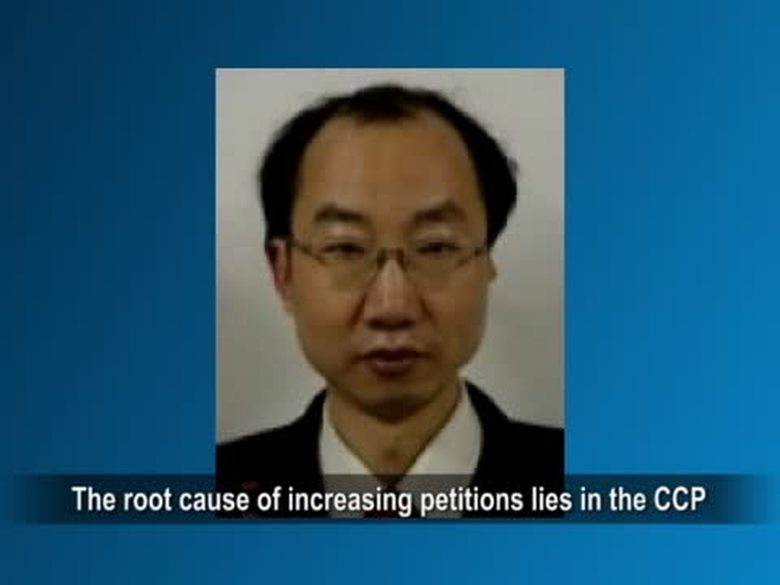
【禁聞】高院推新措施遏止「涉訴信訪」
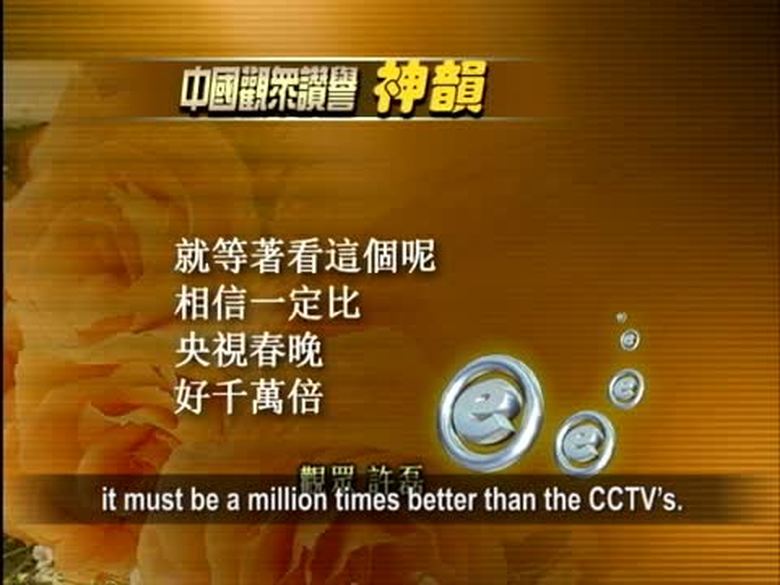
【禁聞】破網看神韻新年晚會 網友讚譽
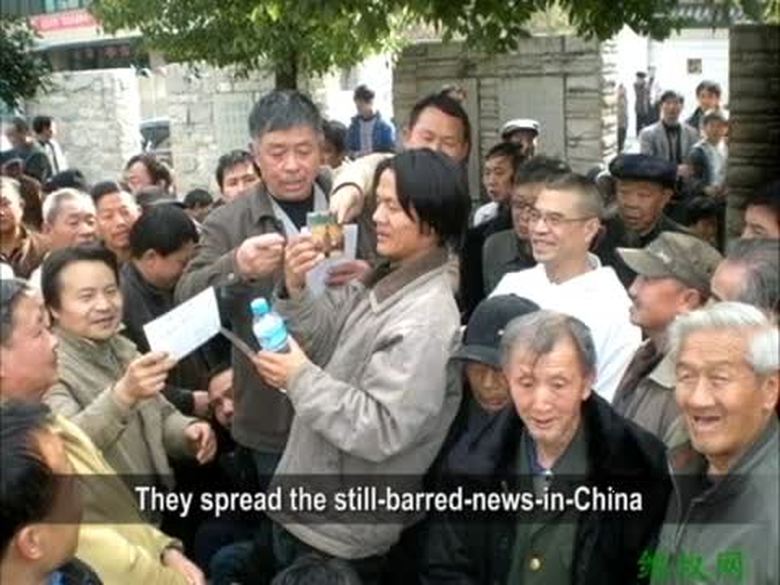
【禁聞】國際反獨裁趨勢 鼓舞中國人權
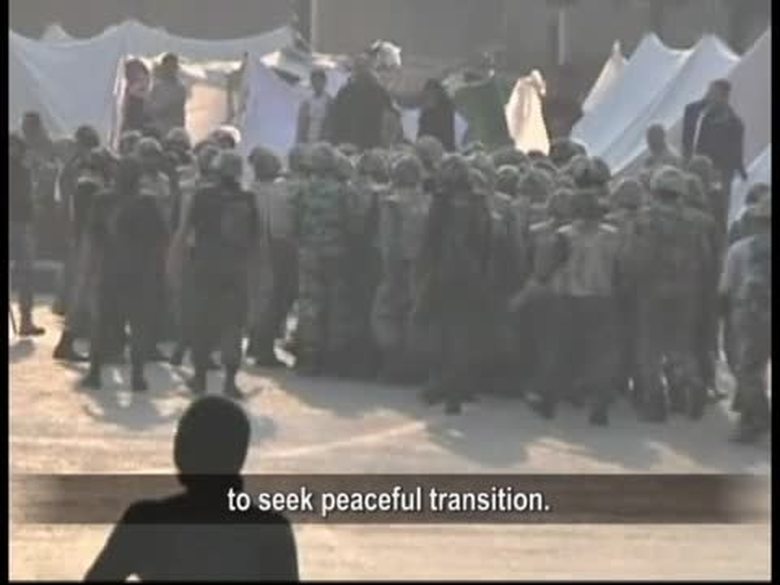
【禁聞】一樣示威兩結局:中國黨指揮槍

【禁聞】鐵道部高官落馬 涉案數十億
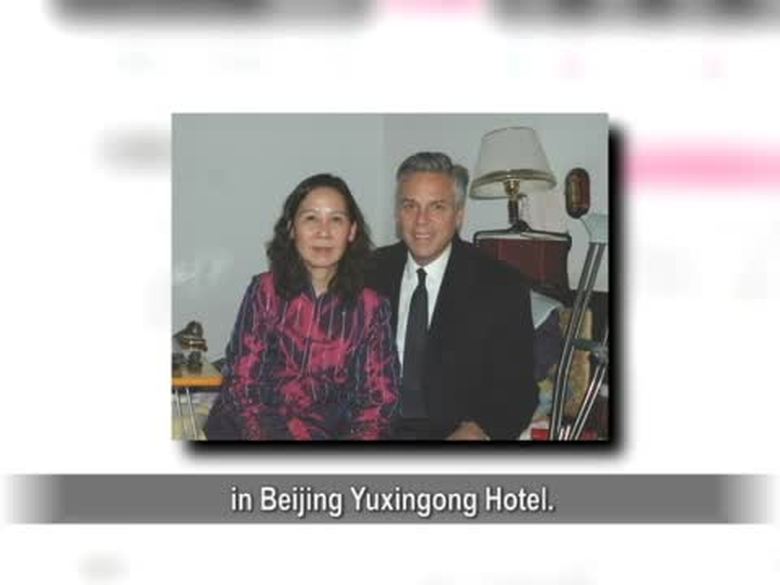
【禁聞】美駐華大使看望維權律師倪玉蘭
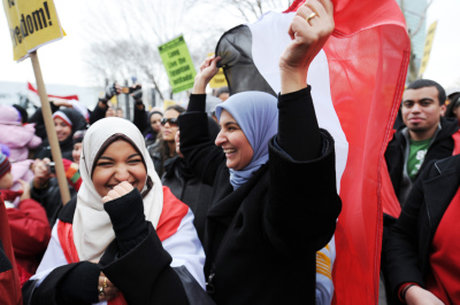
【禁聞】埃及革命成功 胡錦濤想甚麼?

【禁聞】傳統媒體被控 網民闢信息新渠道

【禁言博客】: 上海首次規定土地出讓期滿後無償收回
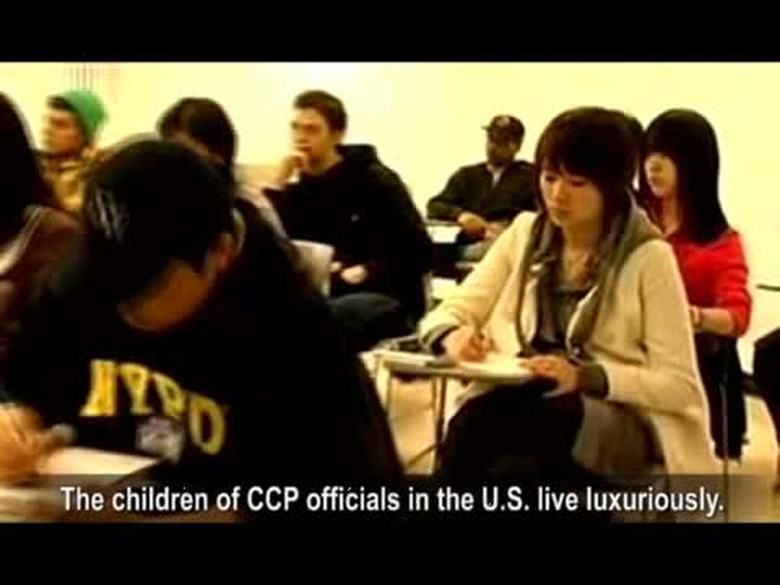
【禁聞】中共官後代多持「雙國籍」
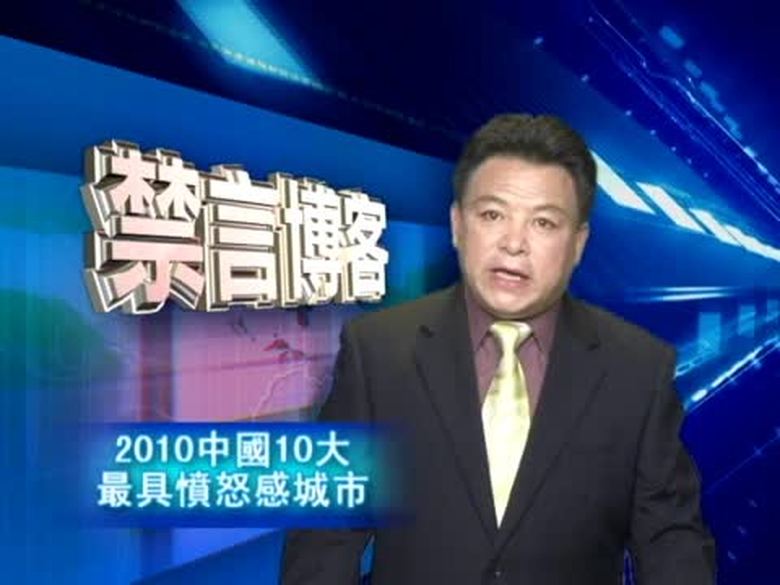
【禁言博客】2010中國10大最具憤怒感城市
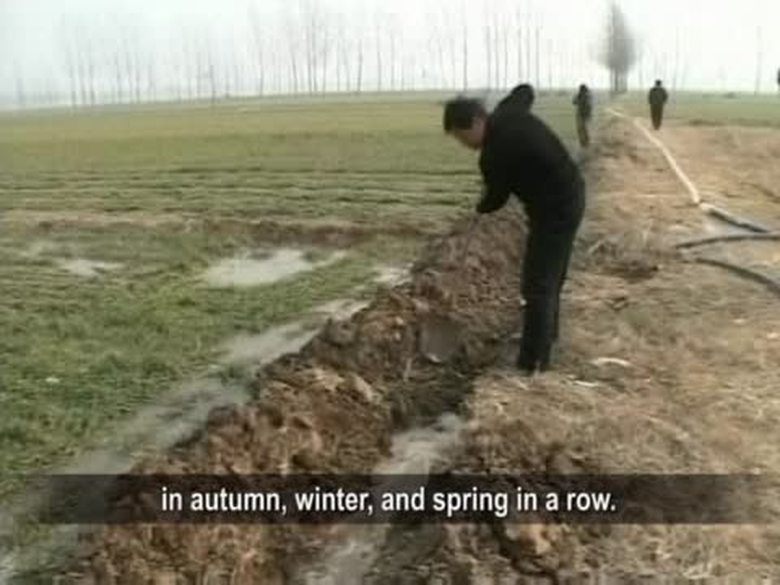
【禁聞】旱情危及小麥產量 中國通脹壓力大
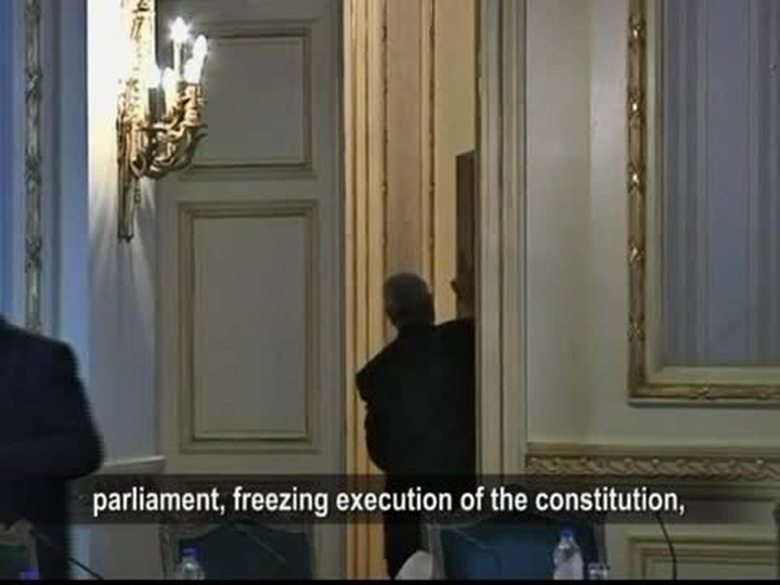
【禁聞】埃及軍方中立 啟示中國軍人選擇
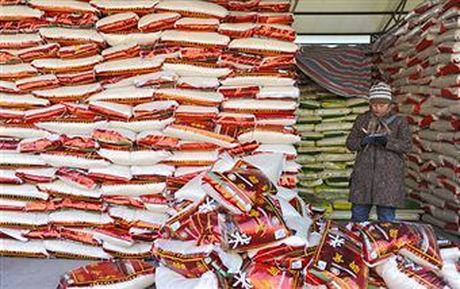
【禁聞】中國糧價飆 中共“維穩”難
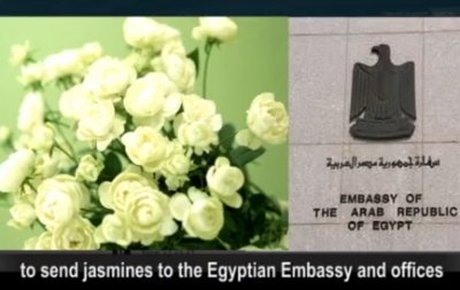
【禁聞】信息關不住 茉莉花獻埃及
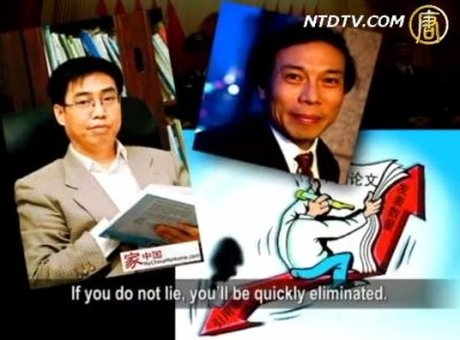
【禁聞】中國論文學位“通膨”








